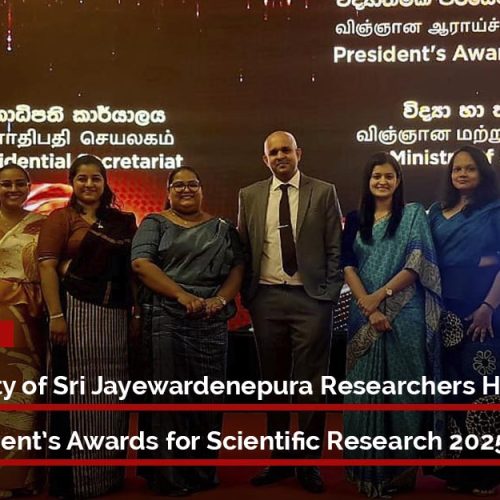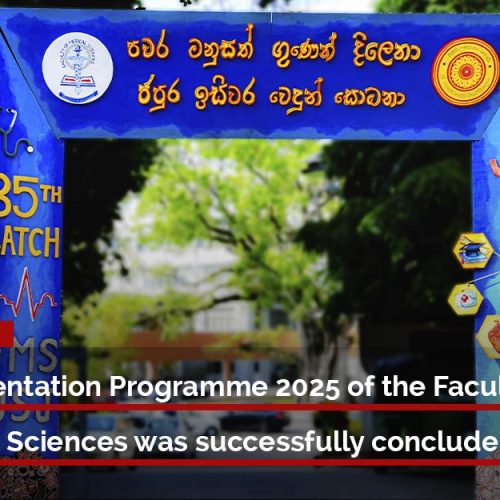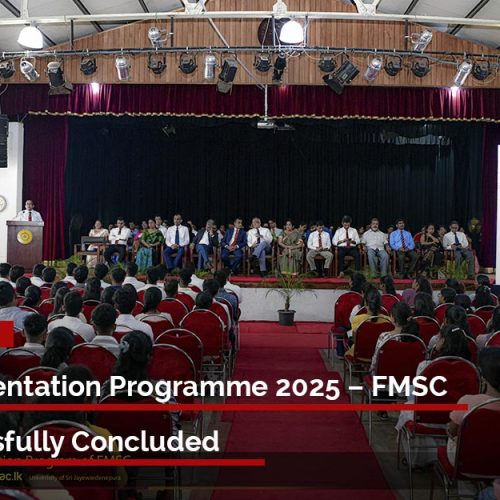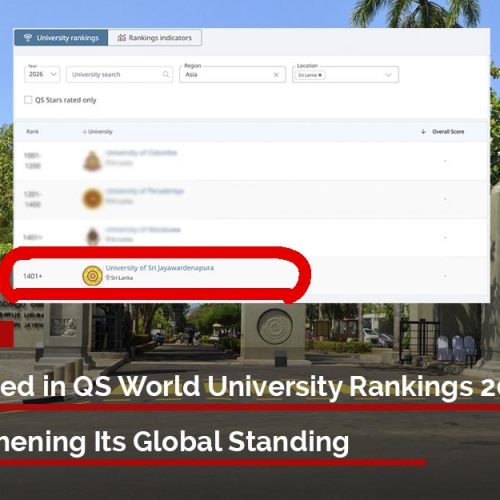The Dengue Research Center, in the Faculty of Medical Sciences in the University of Sri Jayewardenepura’s has made a breakthrough in the treatment of the deadly dengue fever. Prof. Neelika Malavige, the Director of the Dengue Research Center of the University of Sri Jayewardenepura claimed in the interview with the Sunday Observer newspaper, that they had found a new way to block the fluid leakage in Dengue Hemorrhagic Fever (DHF).

This team of researchers has successfully tested a drug that can be used on dengue patients. If the rest of the clinical trials prove to be as promising as the first clinical trial conducted recently at the Infectious Diseases Hospital (IDH), Angoda, the team says, the drug can be effectively used before long to control the spread of this deadly vector borne disease.
The country has recorded 90,865 dengue patients so far this year, and the number of deaths has exceeded 300. Compared to 55,150 dengue patients in 2016 and 29,777 in 2015, it has become a national crisis.
They have found a way to block the fluid leakage in Dengue Hemorrhagic Fever (DHF) patients using a safe drug, Rupatadine, which is already in use worldwide, to treat certain allergic diseases. The drug will in turn hopefully reduce the occurrence of DHF, when patients are infected with the dengue virus. Currently, DHF is associated with a high chance of death unless their condition, at the critical stage, is clinically managed through closely regulated fluid intake and output.
This drug has overcome the first clinical trial and is awaiting the second clinical trial at the IDH. The lining of blood vessels consists of individual cells stuck together with a cement like substance. It is like a tiled wall with grout in between. If this cement like substance is weakened, the water seeps through. Likewise, the blood can leak from the capillaries (small blood vessels) if the binding matter between cells in the lining is weakened.
- Fluid leakage

This leakage of fluids from the capillaries is what causes severe dengue. This particular stage is called the critical phase of dengue hemorrhagic fever. When there is a lot of fluid leakage, the blood pressure drops. If nothing is done to manage the situation the patient goes into ‘dengue shock’ and might eventually die.
At this stage, the patient is given saline and other fluids to counteract the effects of leakage and the patient’s fluid output, urine and blood pressure are checked constantly.
The next approach is to block the fluid leakage. By doing this we can stop people from transiting to the critical stage.
As a first step, the research team had identified the main mediator that causes this fluid leakage, (the cement like substance to weaken). It has been identified as the ‘platelet activating factor’.
Rupatadine is widely used in the US, Europe and Australia for certain types of allergic diseases. This particular drug basically, does not cause any side effects.
Therefore, the team had decided to test how the drug works on dengue. The result was an initial clinical trial at the Dengue Management Unit at the IDH, headed by Dr. Ananda Wijewickrema.
- Placebo

As a result, a ‘Randomized Placebo Control Trial’ which is a trial using a placebo was done on 183 patients with the blessings of the Health Ministry. When a clinical trial is done, to eliminate bias, half of the patients are given the actual drug and the other half a placebo, a drug which has no therapeutic effect. The patients did not know if he or she was getting the drug or the placebo. And to eliminate the doctor-bias, the doctors in the particular unit were kept in the dark as to who were getting the real drug.
During the first trial they have found that the drug was safe to be given to dengue patients and it appeared to reduce fluid leakage as well as other complications associated with dengue, such as, liver issues and the dropping of platelet count. The drug also reduced the duration of the illness.
The results were quite promising, so they have thought of doing another trial. The next Randomized Placebo Controlled Trial will be at the Out Patient Department (OPD) of the IDH.
If that trial is successful the research team will conduct another trial in the dengue units of a number of other hospitals. Doing it in one hospital is not enough to make sure that they got the results right. Once they do the phase three trial they can make the drug available.
- Misconceptions

They may need at least two years to complete these stringent clinical trials on par with best international standards, before the drug can be prescribed to Dengue patients. That is how a medicine is made available to patients worldwide. There are a lot of misconceptions going around on Dengue. Before a drug is made available there has to be a lot of screening and clinical trials to know if it actually works. Before making claims about the therapeutic effects it is vital to do scientific trials. This is the first time in history that this particular drug is being tested for Dengue. According to results so far this drug can prevent/reduce the proportion of dengue patients from transiting to DHF.
The drug will also reduce complications associated with DHF. Several investigations are in progress in different countries, namely, Singapore, Vietnam and India, using different drugs, including the cholesterol lowering drug and asthma drug, for treatment against dengue infection. The Indian Council of Medical Research and the Ministry of AYUSH had conducted clinical trials for an Ayurveda-based drug for dengue. But most of these are in their early development stage.
The team has got clinical approval from the Health Ministry for the trials just concluded at the IDH and are currently working on a number of approvals for upcoming clinical trials.
The local team is liaising with the Oxford University Prof. Graham Ogg in all the research projects associated with the Dengue drug.
Cited from www.sundayobserver.lk/2017/07/16/features/finally-promising-drug










